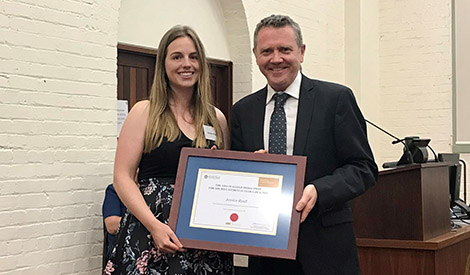

Blog

Paperwork or patient connection?
Friday March 5, 2021
Starting my intern year with a mixed General Practice and medical ward rotation in Albany has been an exciting and cool (literally, freezing) experience so far.
I have no doubt that every one of my fellow interns has shared in the emotional rollercoaster that was week one – from elation to exhaustion, and excitement to feeling completely overwhelmed. While the novelty of being paid for our time is still fresh, so too are our communication, negotiation and med-charting skills. The student bubble wrap is gone, and we are now fully exposed to the demands, responsibilities and paperwork that all come with the title of doctor.
As a medical student who lingered on the wards for longer than many and stalked the poor juniors I was with, I thought I had a pretty good idea of what intern life entailed. However, knowing and doing are definitely two different things and while there have been several surprises, the most significant for me so far is how little time I have actually spent with patients. The luxury, as students, of sitting and hearing about each grandchild or retirement hobby is no longer a practical reality. With time at a premium, building rapport and connections with patients suddenly seems much harder to fit into the day and I’ve quickly learnt, requires a more conscious effort.
Even after a week, I can see how easy it is to slip into “the man in bed 30” and not “Peter, the ex-vintner and local lawn bowls champion”. Or the awful feeling of getting to the end of a round and not being able to recall which patient is which, as the charts, notes and results have obscured me from the patient who lies beyond the files in my arms. With constant phone calls, endless to-do lists and piles of discharge summaries, I found myself guilty of misclassifying non-medical interactions as potentially time wasting.
In the busy-ness of being busy, I’m trying to remind myself that what the patient will remember is not my charting ability, or the eloquence of my discharge summary, but whether I addressed the things that were important to them. So, it’s worth asking about the cricket score, or discussing knitting trends while I cannulate, or re-explaining that medication for the third time because now their daughter is there. As I try to prioritise my many tasks and marry this with my current level of (in)competence, I will continue to make connecting with my patients a deliberate priority. For I recognise that these moments of connection are as fulfilling for me as they are for my patients.

